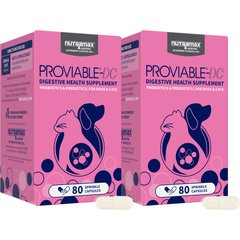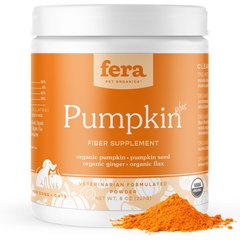Big Box and Online Pharmacies, and How to Be Sure Your Pet’s Meds Are Safe
Back in the good old days, things were a lot easier for us veterinarians—before the pharmacies got involved.
It used to go like this: a dog needed some medication, and the vet would note in the chart what they wanted. The technician would go in the back, get it together, make a label, and the client would go home with the med in hand. Done and done.
Then we started getting faxes from various online pharmacies. First it was for heartworm meds, usually for a pet who hadn’t had a heartworm test in years. If we didn’t respond right away, we’d get more faxes and calls from the pharmacy, usually while we were still trying to contact the client to explain why we couldn’t fill the prescription. That was back before e-mails, even.
Recommended Pet Products
- Nutramax Proviable Probiotics & Prebiotics Digestive Health Supplement for Dogs & Cats, 160 count$89.98Chewy Price
- Fera Pets USDA Organic Pumpkin Plus Fiber Support for Dogs & Cats, 90 servings$34.95Chewy Price
- All Four Paws Comfy Cone E-Collar for Dogs & Cats, Black, Small$20.24Chewy Price
- Virbac Epi-Otic Advanced Ear Cleaner for Dogs & Cats, 4-fl oz bottle$12.34Chewy Price
There was concern for some time that clients were getting less-than-kosher medications, since no one knew where the meds were sourced and the pharmacies weren’t telling. Were they expired? Were they grey-market? Were they counterfeit? Or were they fine?
Some veterinarians refused to fill prescriptions out of concern for the pets, others because they were frustrated that these third party pharmacies were taking income from their practices.
In addition to online pharmacies, we’ve seen places like Target and Costco expand their onsite pharmacy offerings to dispensing veterinary-only products that have no human equivalent. With their larger buying power, these big box stores can buy the same medications at a greater discount than a single vet practice and offer them to clients at (sometimes) lower prices.
When clients can get the same medication at a lower cost from a trusted source, who could blame them for wanting to save money where they can? The number of clients filling prescriptions from places other than their veterinary office is a trend that isn’t going away; if anything, it’s growing. And that’s okay. It does, however, create its own series of problems.
For one, veterinarians and doctors are not the same, nor are our patients. I can’t count the number of times I’ve had to argue with a pharmacy technician that no, I do not have a national provider identifier, as none of my patients have Medicare.
“Well, we can’t fill the prescription without it,” they will say.
“Then I guess you won’t be filling it,” I say. “I don’t even know what that is.”
“Then you aren’t really a legal doctor,” they will say, and round and round we go, while the client is standing in line getting increasingly frustrated.
More importantly, many pharmacists are unfamiliar with veterinary drugs and dosages. Thyroid medications, for example, are dosed for dogs at an order of magnitude greater than for people due to differences in metabolism. This confusion can result in prescribing errors or major delays in getting the medication. In worst case scenarios, it can cause life-threatening complications if there is not a good line of communication between pharmacist and veterinarian.
This isn’t the fault of either the veterinarian or the pharmacist, both of whom want to do the right thing by their clients, but it is going to take some time to sort through.
We all have a role:
For our part, we vets need to be more understanding of clients’ desires to fill prescriptions elsewhere and make ourselves available to pharmacies with questions. Many veterinarians will price match in order to ensure their clients receive adequate counsel and oversight from the clinic; it’s always worth asking about.
Pharmacies need to be proactive about educating themselves on veterinary medications if they want to provide them to clients. The National Association of Boards of Pharmacy recently amended its Model State Pharmacy Act to require human pharmacies that dispense veterinary drugs to have at least one current reference on site. Plumb’s, for example, is only about $75 and is an instant way for pharmacists to check on dosages that may seem off to them, in addition to contraindications and drug interactions. Seems like a good investment.
For clients, know the red flags indicating that an online pharmacy may not be legitimate. Make sure online pharmacies belong to the Veterinary Verified Internet Pharmacy Practice Sites (Vet-VIPPS), a voluntary accreditation program through the National Association of Boards of Pharmacy. Many veterinary clinics have specific online providers they work directly with, providing cost savings and convenience for clients while ensuring the veterinarian is also in the loop. Also, ask your veterinarian for a printed copy of the prescribing information so you can double-check the dosage prescribed is the one received.
It will take some time to get where we need to be, but we’re getting there. Do you ever get your pet medications online? Share your experience.
Dr. Jessica Vogelsang




